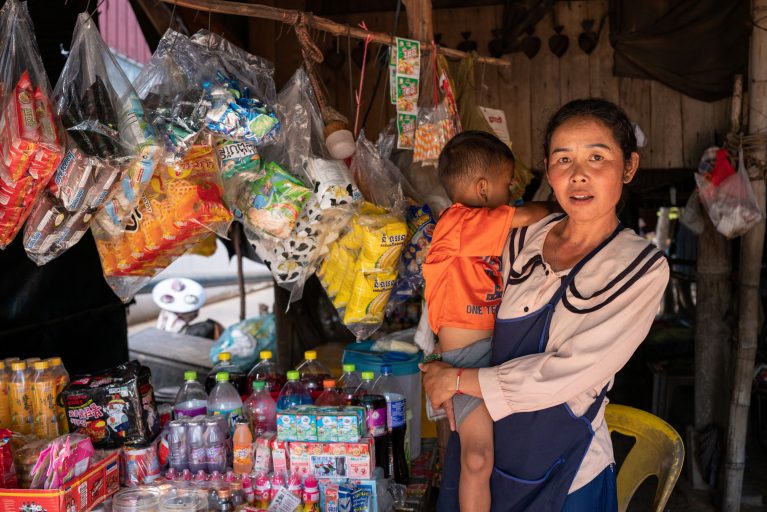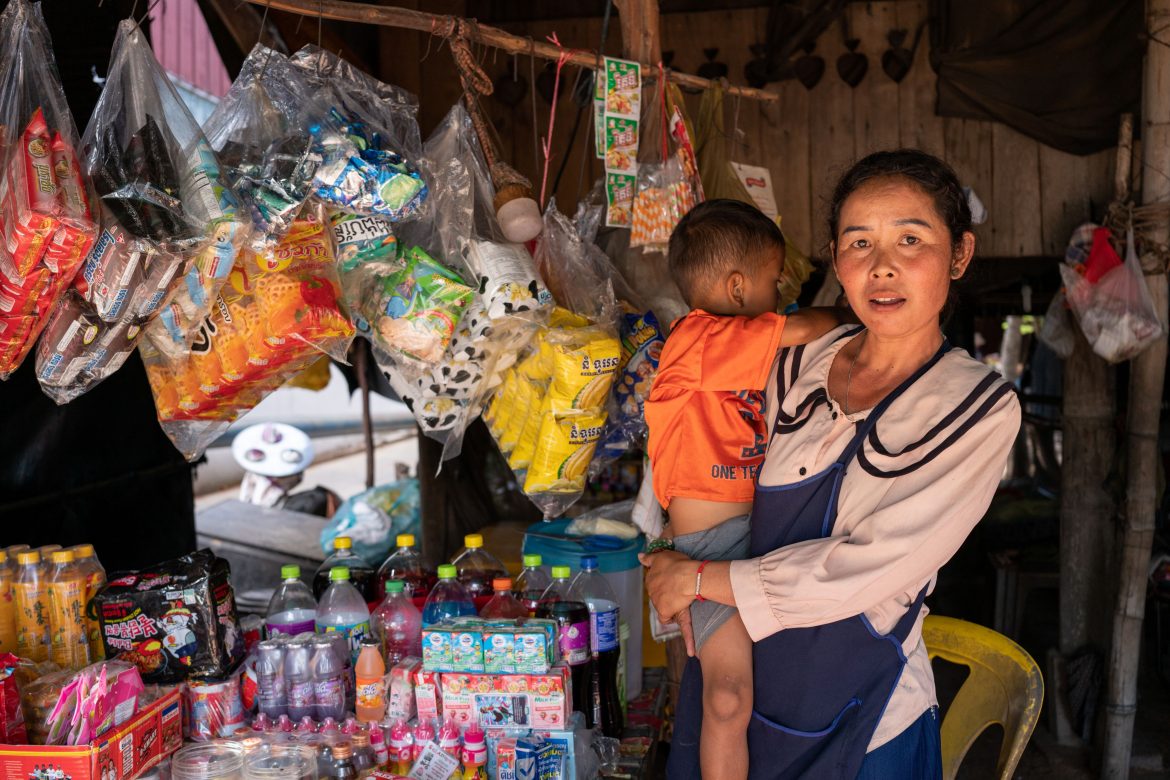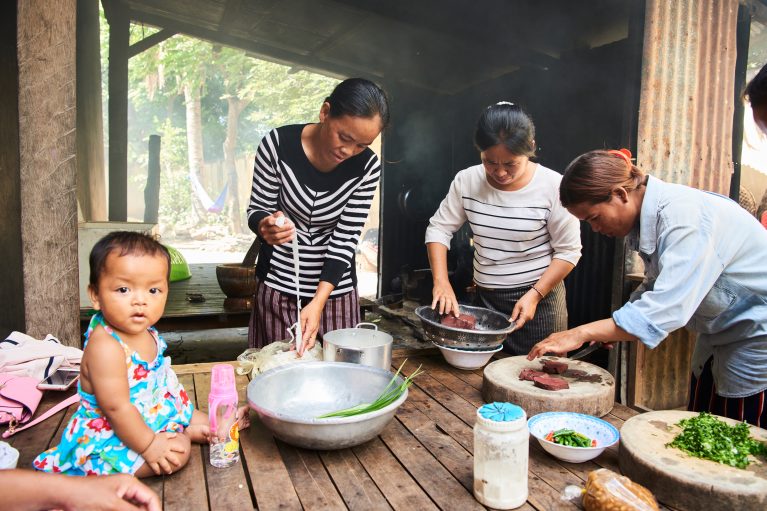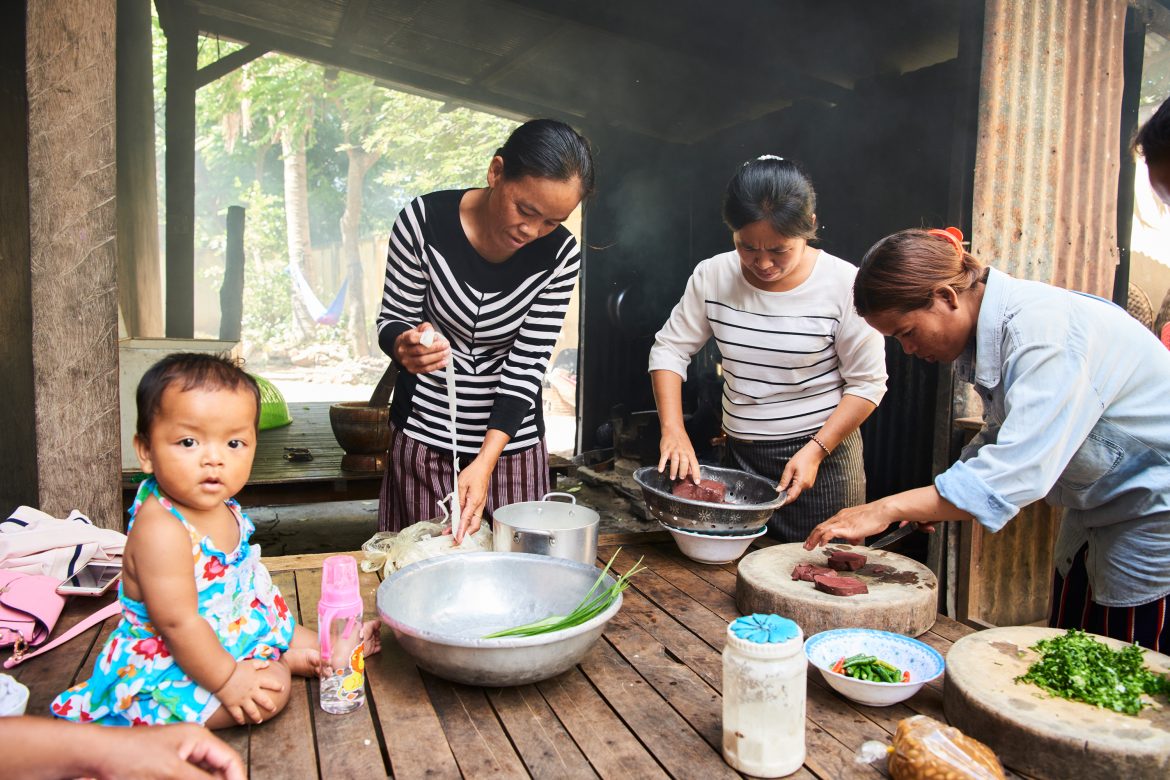Cambodia: Safe Migration and Reintegration
Every year, hundreds of thousands of people leave Cambodia in search of work – many of them crossing illegally into Thailand. Women are particularly at risk: human trafficking, sexual exploitation, debt bondage, and violence are part of the harsh reality faced by many migrants. Together with the Cambodian Women’s Crisis Center (CWCC), Solidar Suisse supports returned migrants with protection, psychosocial assistance, and economic reintegration.
Precarious Labour Migration, High Risks
Cambodia is one of the poorest countries in Southeast Asia. Over one million Cambodian labour migrants – around 40% of them women – work in Thailand, many without official documentation. They are frequently victims of exploitation, forced labour, or human trafficking, especially in sectors such as fishing, agriculture, construction, domestic work, tourism, or sex work.
The Banteay Meanchey region, located on the Thai border, is a hotspot for migration. Up to 100 migrants are deported here every day – often without documents, money, or access to support. Women are particularly exposed to sexual violence and extreme economic insecurity. While Cambodia has legal frameworks in place, effective state protection mechanisms are lacking. Border police and local authorities are often insufficiently trained, and law enforcement remains weak.
Support, Rights, and Perspectives for Returnees
Solidar Suisse works in partnership with the Cambodian Women’s Crisis Center (CWCC) to protect and empower labour migrants in Banteay Meanchey province in northwestern Cambodia. This border region is a key transit point for migration – with an average of 50 to 100 undocumented people being deported from Thailand each day. Many of them are traumatised, destitute, and urgently in need of protection and assistance.
CWCC runs a shelter near the border where affected individuals can find temporary accommodation. They receive psychological care, legal advice, and support for social protection and reintegration into their home communities. Through training and mentoring programmes, women in particular are empowered to start their own microenterprises – providing a safer alternative to returning to risky migration. At the same time, local protection networks have been established in 16 communities. These groups provide information on safe migration, labour rights, gender equality, and violence prevention – including in schools. They advise potential migrants, accompany returnees, and refer high-risk individuals to specialised services. In 2024 alone, more than 2,500 people were directly reached through these efforts.
Cooperation with Local Authorities
In spite of relatively advanced legislation against human trafficking in Cambodia, enforcement is lacking because the border police and local authorities are not sufficiently well trained. Thus close collaboration with these stakeholders is needed to make them more aware of and sensitive to the problems facing migrants.
A key component of the project is close cooperation with local authorities. Although Cambodia has legal frameworks in place to combat human trafficking, implementation remains inconsistent. Border police and local officials often lack adequate training. CWCC actively raises awareness among these actors, involves them in training sessions, and strengthens their role in protecting affected individuals.
As an active member of the National Committee for Counter Trafficking (NCCT), CWCC feeds project experiences directly into political processes – both at the national level and regionally through the Mekong Migration Network and within ASEAN.
Donation for Women's Rights
With your donation you support our projects in favour of women's rights.



